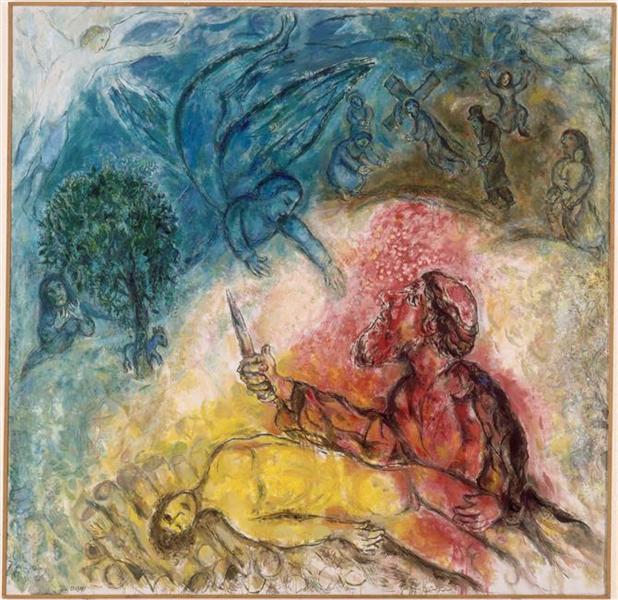The Sacrifice of Reason Rather than Isaac's

It has often been said that Gen. 22 is one of the most beautiful narratives in the Jewish Foundational Literature and occupies a special place in literatures worldwide.
This is a tale about the first of Israel’s patriarchs, Abraham, being tested through a command to sacrifice Isaac—his beloved son.
But, just when Abraham is at the point of executing the terrible order, an angel calls him to stop,
“because now I see that you are God-fearing and would not withhold your son… from Me”
(Gen. 22: 12)
With this dramatic event, Abraham initiates a new religious experience known as “faith” (Emunah, אמונה in Hebrew). This word, which appears for the first time in the Torah with Abraham, connotes “trust.” As in “trust” in God, another person, or the veracity of an idea. The kind of event or command to which one says “amen,” this shall be.
However, the tale that epitomizes faith also gives rise to one of the most complex issues moral and religious cultures have to face.
In the 19th century, the Danish philosopher Søren Kierkegaard famously called Abraham the “knight of faith.” Though affirming that Abraham’s greatness consisted in his obedience to God, he also recognized the possibility that Abraham had been prepared to commit an act whose religious description is “sacrifice;” however, its ethical description is “murder.”
Still facing the possibility of a conflict between divine commands and morality, Kierkegaard, following Abraham, asserted the supremacy of religious faith.
Immanuel Kant, widely considered one of the central and most influential figures of modern philosophy, however, had stated that
“There are certain cases in which man can be convinced that it cannot be God whose voice he thinks he hears: when the voice commands him to do what is opposed to the moral law...”
Kant was convinced that this command to kill could not have come from God because God cannot contradict His moral law, the one that commands not to kill.
Kant maintained that Abraham’s correct response to the voice from heaven should have been:
“That I ought not to kill my good son is quite sure. But that you, this apparition, are god- of that, I am not sure, and never can be…”
For generations, the traditional lesson given to children in Jewish school and one urged from the pulpit by rabbis, has been: “Be ashamed at how little you are asked to do for your people- look at Abraham,” or “Be consoled at what you have sacrificed for your people- look at Abraham.”
When carefully reading what the text says, the message of this chapter is that God does not want Isaac to be sacrificed. God’s love and mercy are available to humanity without having to be earned by sacrificing another human being.
Genesis 22 seems to teach that faith in God’s command overrides the command of the ethical. But, it is not so.
As poignantly exemplified in the story of Sodom and Gomorrah a few chapters earlier in the book of Genesis, the Torah teaches that in the end, there is an ethics to which even God has to submit, for if he does not, he would be guilty of injustice.
A theology- that is, a view of God that justifies injustice is not genuinely Jewish. One of Judaism’s supreme commandments is: “Justice, justice shall you pursue (צדק צדק תרדף).
That is, you shall pursue justice through justice. Unjust means not justifying the means, no matter how just the end is.
The whole verse of Deuteronomy 16 20 reads:
Justice, justice shall you pursue so that you may thrive and occupy the land that the Lord your God is giving you.

